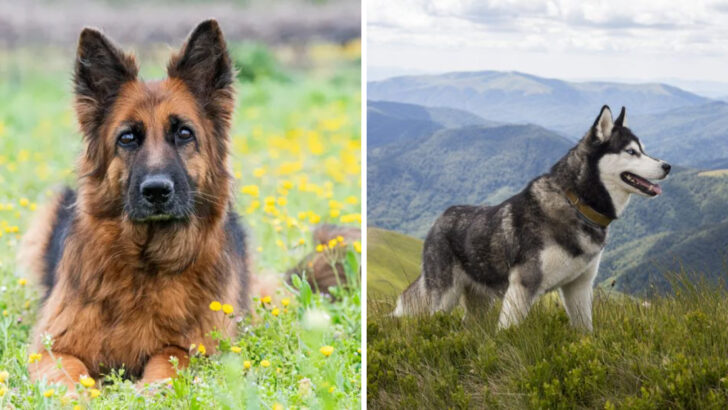When it comes to choosing between a German Shepherd and a Husky, the battle is real! These two breeds are as different as night and day, each with its own flair, personality, and quirks.
Are you drawn to the loyal, intelligent, and protective nature of the German Shepherd? Or do you find yourself captivated by the free-spirited, independent vibes of the Husky? One thing’s for sure – choosing between these two is not for the faint of heart.
From their appearance to their temperament, we’ll break down 15 crucial traits that will help you understand exactly what makes each breed unique.
It’s not just about picking a dog – it’s about matching their spirit to yours! Ready to dive in? Let’s unravel the mysteries of these two incredible breeds and discover which one is the perfect fit for you.
Origin and History
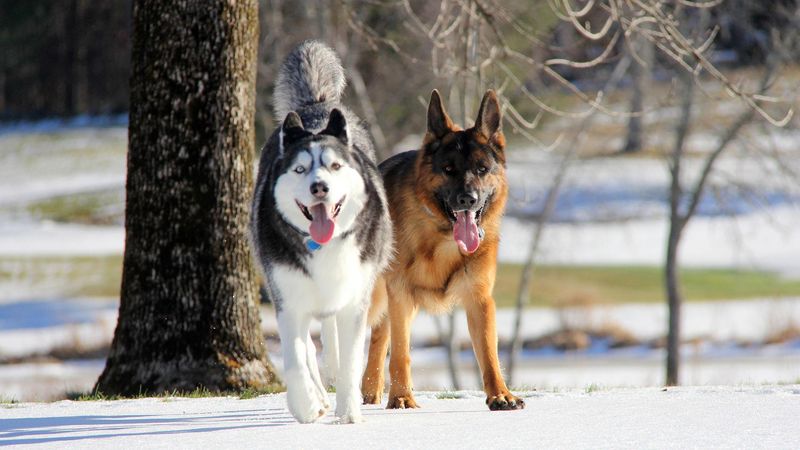
German Shepherds originated in Germany in the late 19th century, primarily bred for herding and protection. Their strong work ethic made them favorites in police and military roles. Huskies, in contrast, hail from Siberia, where they were bred by the Chukchi people for sled-pulling and endurance in harsh, cold climates. Their history is steeped in survival and companionship with the nomadic tribes. While both breeds have rich histories, their roles and environments shaped their development differently, influencing their modern characteristics and lifestyle suitability. Understanding these origins provides a backdrop for their respective behaviors today.
Physical Appearance
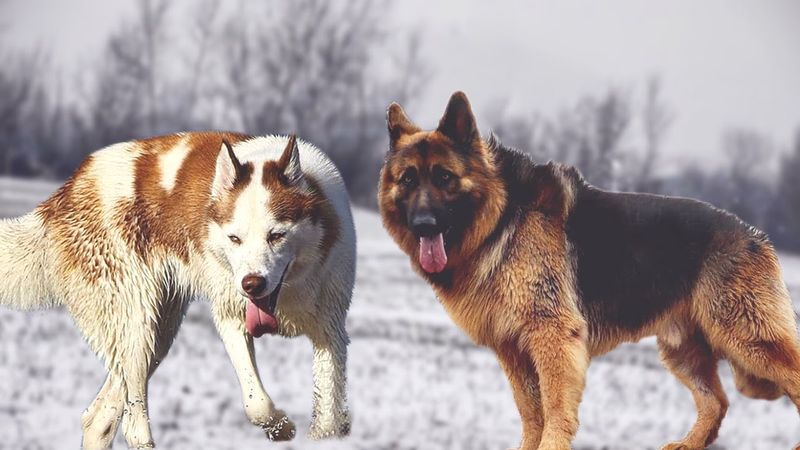
German Shepherds are known for their strong, athletic build and a confident, noble stance. Their coats are typically medium-length, with shades ranging from black and tan to sable, providing an imposing yet elegant appearance. Huskies, on the other hand, boast a wolflike appearance with a compact body built for endurance. Their thick double coats can come in various colors, including black, grey, and red, often accompanied by striking blue or heterochromic eyes. These physical traits are not just aesthetics; they reflect the breeds’ adaptation to their environments and historical roles.
Temperament
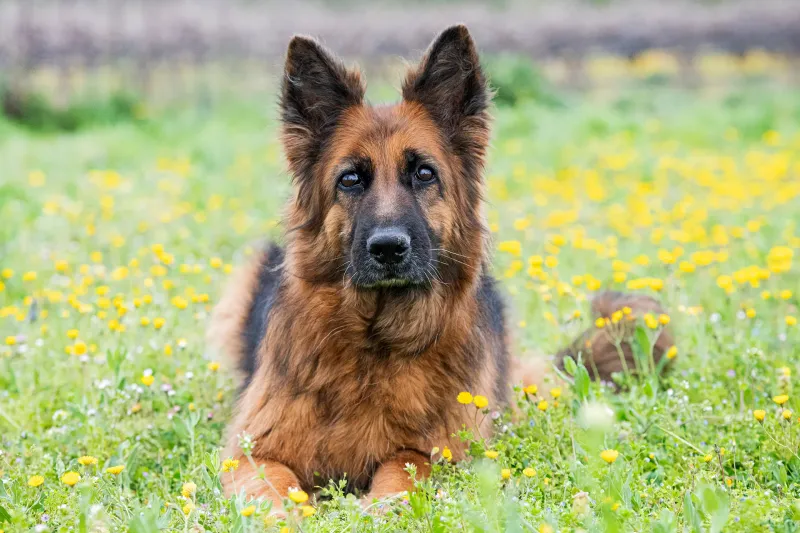
The temperament of a German Shepherd is often described as intelligent, loyal, and protective, making them excellent working dogs. They thrive on tasks and are eager to please their owners. Huskies, in contrast, are known for their playful and independent nature. They are sociable dogs but can exhibit a stubborn streak, reflecting their sled-pulling ancestry. This independence sometimes translates into a mischievous personality, requiring patience and understanding. Recognizing these temperamental differences is essential for potential owners when considering which breed aligns best with their lifestyle and expectations.
Exercise Needs
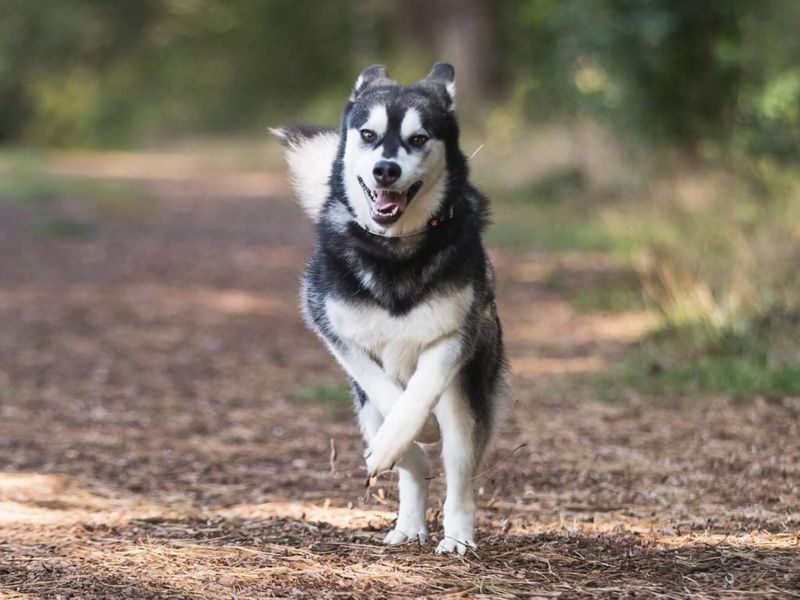
Both breeds are energetic and require substantial exercise to maintain their physical and mental health. German Shepherds excel in various activities, from agility training to obedience competitions, reflecting their versatility. They enjoy structured activities that challenge their intelligence. Huskies, meanwhile, have an innate need for running and can cover long distances effortlessly. Their exercise requirements stem from their history as sled dogs, needing ample space and opportunities for physical exertion. Meeting these needs can be demanding, but it’s crucial for preventing behavioral issues and ensuring a happy, healthy dog.
Trainability
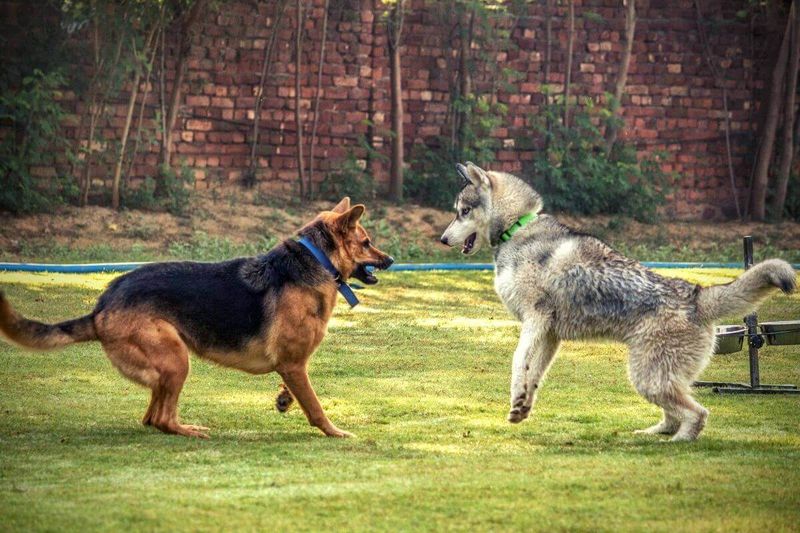
German Shepherds are highly trainable due to their intelligence and eagerness to please. They excel in obedience training and are often employed in roles requiring discipline and focus. This trainability makes them suitable for various activities and environments. Huskies, while intelligent, are more independent and require a different approach. Their stubborn nature can make training challenging, demanding consistency and patience. Positive reinforcement and understanding their motivations are key. Both breeds can be trained successfully, but the methods and approaches differ significantly due to their inherent temperamental traits.
Grooming Requirements
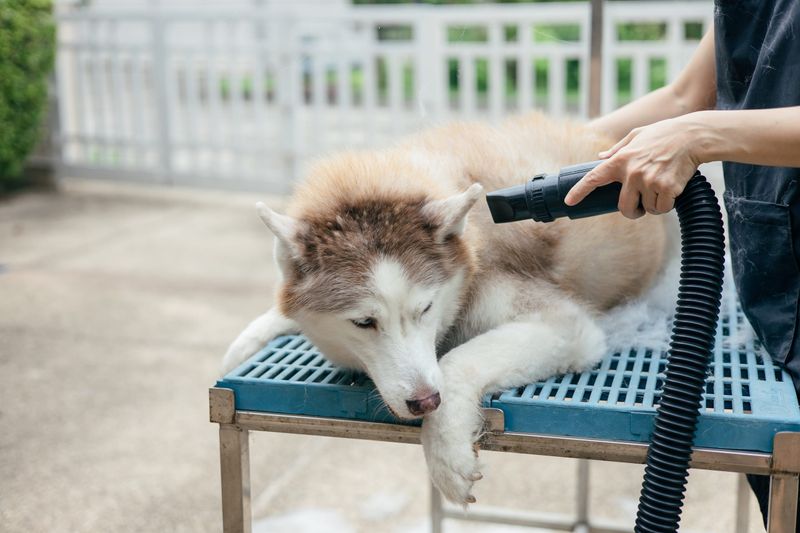
Grooming can be a significant consideration for potential owners. German Shepherds shed moderately and require regular brushing to manage their double coats. They benefit from periodic baths and routine ear cleaning to maintain health. Huskies also have double coats, known for heavy shedding, especially during seasonal changes. This ‘blowing coat’ period requires more frequent grooming sessions to manage loose fur. While both breeds need attention to their grooming, Huskies may demand more effort during shedding seasons. Proper grooming is essential not only for appearance but also for the overall well-being of the dog.
Lifespan and Health

German Shepherds typically have a lifespan of 9 to 13 years, while Huskies tend to live slightly longer, averaging 12 to 15 years. Both breeds are prone to specific health issues; German Shepherds often face hip and elbow dysplasia and degenerative myelopathy. Huskies, meanwhile, can experience eye problems and hip dysplasia. Regular veterinary check-ups and maintaining a healthy lifestyle through diet and exercise can mitigate some health risks. Understanding these potential issues is crucial for prospective owners, ensuring they are prepared to meet the breeds’ health needs and provide a long, healthy life.
Diet and Nutrition
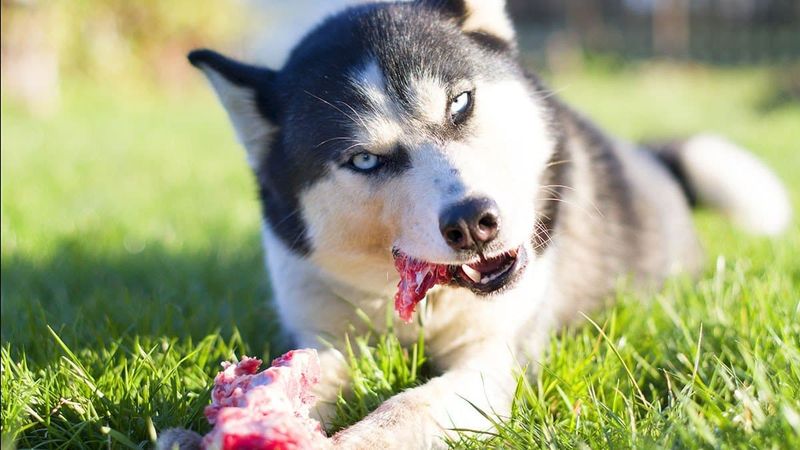
A balanced diet is vital for both breeds. German Shepherds, being active and muscular, require a diet rich in protein and healthy fats to support their energy levels and maintain muscle mass. Huskies, with their high metabolism, need a diet that provides sufficient calories yet maintains lean muscle. Quality commercial dog foods, supplemented with fresh ingredients like vegetables and lean meats, can cater to these needs. Monitoring portions and ensuring a balanced intake of nutrients helps prevent obesity and related health issues. Each breed’s dietary requirements vary slightly, reflecting their unique metabolic and activity needs.
Social Needs

German Shepherds are known for their loyalty and form strong bonds with their families. They require social interaction and can be protective, making them excellent family dogs. Huskies are social but are also independent. They enjoy the company of humans and other dogs, thriving in environments where they can interact and play. Both breeds exhibit unique social needs that prospective owners should consider. German Shepherds may require more focused interaction with their family, while Huskies benefit from broader social environments. Understanding these differences can help in providing a fulfilling life for the dogs.
Living Environment
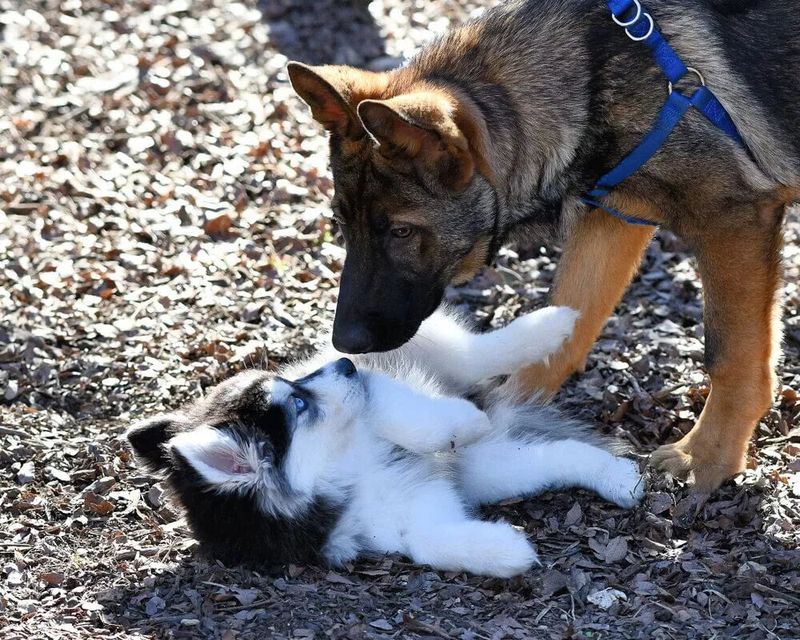
Living environment greatly influences the well-being of both breeds. German Shepherds adapt well to various environments, provided they receive sufficient exercise and mental stimulation. They are often suited for suburban or rural settings with space to roam. Huskies, originally bred for the Arctic, flourish in cooler climates and need plenty of space for physical activity. Apartment living can be challenging for Huskies unless they receive ample outdoor time. Ensuring the living environment aligns with the breed’s needs is crucial for their happiness and can prevent potential behavioral issues related to boredom and confinement.
Intelligence and Problem-Solving
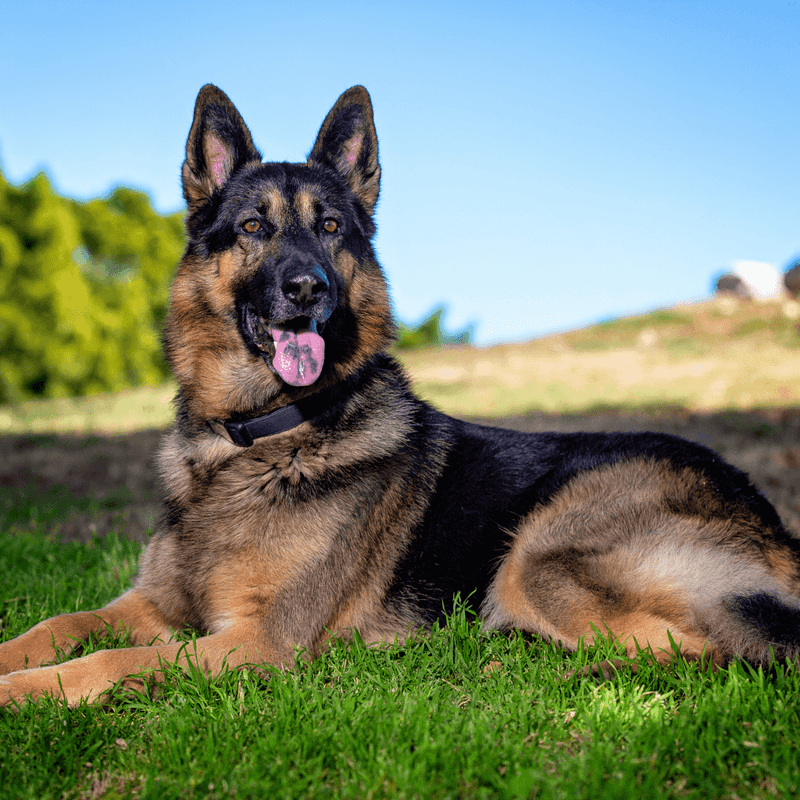
German Shepherds rank high in canine intelligence, known for their ability to learn commands quickly and solve complex tasks. This trait makes them suitable for advanced training and roles that require problem-solving. Huskies possess a different kind of intelligence, often leaning towards creative problem-solving that can manifest in escaping or finding food. Their independent nature requires engaging activities to keep their minds stimulated. Both breeds need mental challenges to thrive, but their approaches to problem-solving differ. Owners should tailor activities to each breed’s strengths to nurture their cognitive abilities.
Barking Tendency
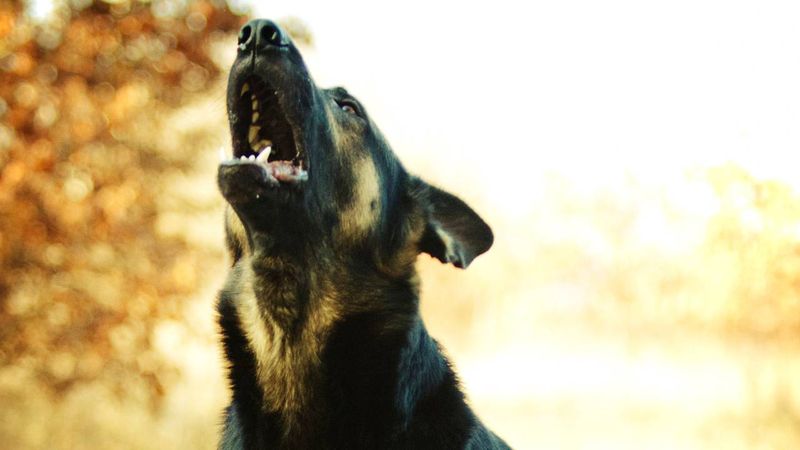
Barking tendencies can vary significantly between these breeds. German Shepherds are known for their alert barking, often used to communicate and protect their territory. They bark when necessary, making them good watchdogs. Huskies, however, are less prone to barking and more likely to howl or vocalize in other ways, reflecting their pack-oriented nature. This vocalization can be charming but sometimes challenging in residential areas. Understanding these tendencies helps potential owners prepare and train appropriately, ensuring these natural behaviors are managed and appreciated within their living environments.
Adaptability
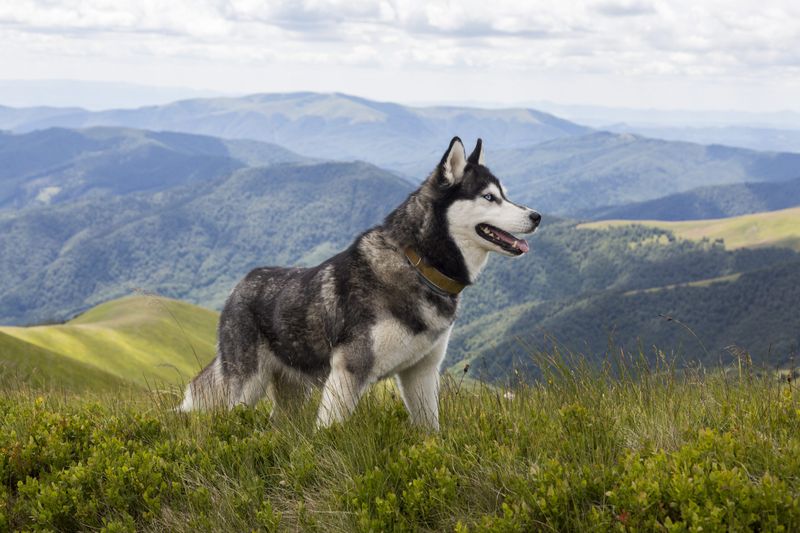
Adaptability varies between these breeds. German Shepherds are versatile and can adjust to different living situations, provided their exercise and mental needs are met. They thrive in both urban and rural settings. Huskies, on the other hand, are better suited to environments that cater to their physical and social needs, often preferring cooler climates. Their adaptability is somewhat limited by their need for space and exercise. Owners should consider these adaptability traits when choosing a breed, ensuring their home and lifestyle can accommodate the dog’s requirements for a harmonious living arrangement.
Family Compatibility
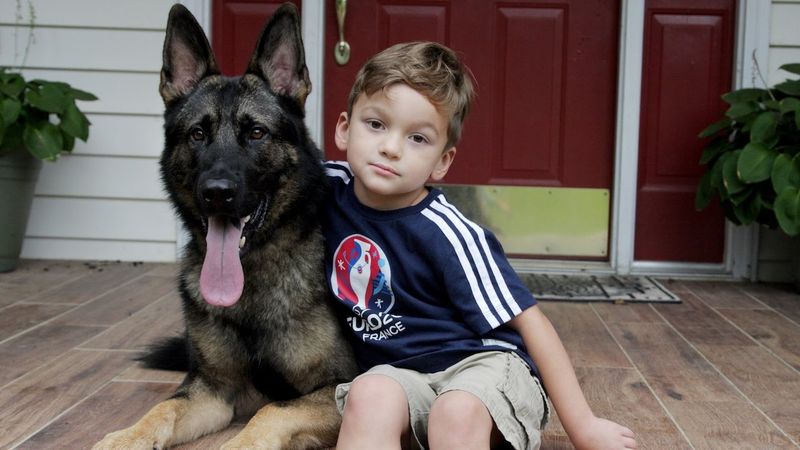
Both breeds can be wonderful family pets, but they offer different dynamics. German Shepherds are protective and form strong bonds with their families, often acting as guardians. They are great with children, provided they are well-trained and socialized. Huskies, being playful and energetic, also enjoy family life but may require more supervision with young children due to their exuberance. Their social nature makes them excellent companions for active families who enjoy outdoor activities. Understanding each breed’s compatibility with family life helps in providing a nurturing environment that meets both the dogs’ and family’s needs.
Cost of Ownership
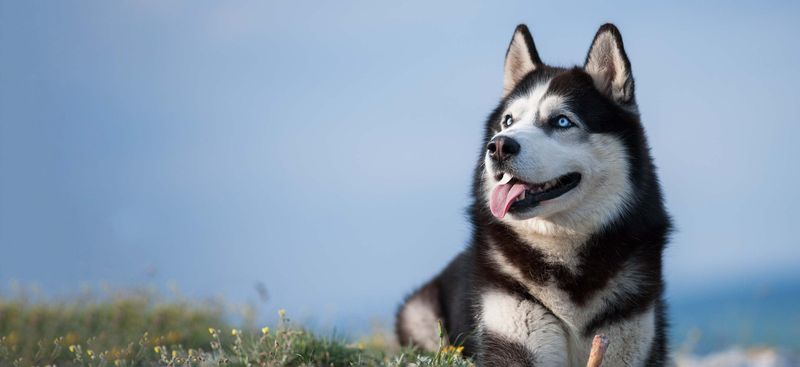
Owning either breed involves financial commitment. German Shepherds may incur higher costs in veterinary care due to their predisposition to certain health issues. Training and grooming are additional expenses to consider. Huskies also require investment in quality food and grooming, especially during shedding seasons. Potential owners should budget for routine veterinary care, food, grooming, and training for both breeds. Understanding the financial aspect of ownership ensures that prospective owners are prepared to meet the needs of their pets, providing them with a quality life and reducing the risk of unexpected expenses.

